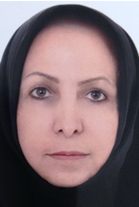4th World Congress on Breast Cancer
Singapore City, singapore

Ziba Farajzadegan
Isfahan University of Medical Sciences, Iran
Title: Effects of peer group education on breast cancer screening beliefs and participation in Iranian women with a family history of breast cancer
Biography
Biography: Ziba Farajzadegan
Abstract
Background: Breast cancer is the most common cancer among Iranian women. Breast cancer screening methods have led to earlier diagnosis and improvement in the survival of breast cancer patients. However, Iranian women with a family history of breast cancer are less likely to participate in breast cancer screening programs. In this study we have evaluated the effectiveness of peer group based intervention in promoting breast cancer screening participation in women with a family history of breast cancer.
Method: Women with a family history of breast cancer who were 20 years or older and in pre contemplation, contemplation, or relapse stage of breast cancer screening according to Trans Theoretical Model (TTM) were included. A computerized randomization was performed to allocate participants to the intervention or the control group. In order to prepare peer group leaders, an educational program was held for volunteer women by a health expert. Afterwards, three sessions were held in three weeks for the intervention
group. A questionnaire was filled out for participants in both groups at baseline one and three months after the intervention.
Results: Overall 98 women completed the study. ANOVA showed that one and three months after the intervention, women in the intervention group had a significantly higher level of knowledge, perceived sensitivity, perceived severity, health motivation, CBE and mammography benefits and lower barriers toward CBE and mammography.
Discussion: A structured intervention based on peer group can successfully improve participants’ knowledge, beliefs and participation in breast cancer screening programs in high risk women for breast cancer.

